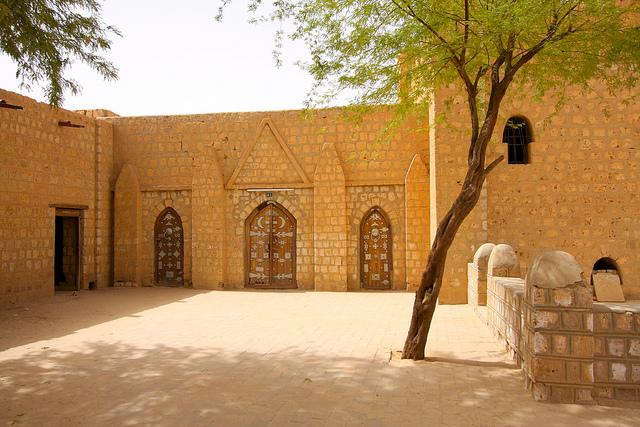
The Beat
Turkey’s coup shockwaves reverberate
Almost three months have lapsed since Turkey’s failed 15 July coup d’état and its ramifications are still ongoing. On Monday, Deputy Prime Minister Numan Kurtulmuş announced that the Turkish government will extend its state of emergency rule by 90 days, taking effect on 19 October. The move will prolong the government’s unchecked policing powers, which it continues to use against perceived enemies of the state and to suppress domestic political opposition.
From The Hague to Timbuktu
Last week, the International Criminal Court (ICC) handed down a landmark decision establishing ‘cultural destruction’ as a war crime. In September 2015, Nigerian authorities surrendered Islamist militant Ahmad al-Faqi al-Mahdi to the ICC on charges relating to the destruction of religious and historic monuments in Timbuktu during the Mali War. At trial, al-Mahdi pleaded guilty to the charges and asked forgiveness for leading the destruction of 10 UNESCO World Heritage listed sites, including nine mausoleums and a mosque, which date to the 15th and 16th centuries. The court determined that the destruction of the cultural artefacts didn’t fulfil any military objectives and sentenced al-Mahdi to nine years in jail.
CT Scan
CVE in the headlines
‘Extremely Together’, an initiative launched earlier this year by the Kofi Annan Foundation to counter violent extremism, took to the stage at the One Young World summit last weekend. Seven of the initiative’s young leaders delivered stirring speeches (53mins) about their experiences and vision for countering extremism in the future. There’s also plenty of new CVE literature to sink your teeth into this week. First off, Dr Haroro Ingram’s latest report (PDF) explores militant Islamist propaganda, highlighting the need to design simple, persuasive counter-narratives to challenge extremist ‘systems of meaning’ and undermine their credibility by highlighting gaps between rhetoric and action. The Hedayah Center’s latest report (PDF) brings together papers delivered at the International Countering Violent Extremism Research Conference last year, while this piece by Paige Pascarelli over at Lawfare discusses ideology and lone-wolf terrorism.
Moscow jihad
There’s been plenty of attention on Russia’s involvement in the Syrian conflict lately—but less on the intervention’s domestic implications in Russia. Leon Aron, writing for War on the Rocks, discusses the expansion of militant Islam in the former Soviet Union and explores its implications for the Russian state. An article from University of Ottawa professor Jean-François Ratelle, ‘North Caucasian foreign fighters in Syria and Iraq: assessing the threat of returnees to the Russian Federation’, is worth checking out for a more in-depth look at the issue.
Checkpoint
Ireland contemplates Brexit border issues
UK Prime Minister Theresa May has firmly rejected implementing a so-called ‘soft Brexit’, asserting that Britain’s priorities are regaining control of immigration and withdrawing from the European Court of Justice’s jurisdiction. While May has outlined a clearer idea of exit plans, uncertainty lingers over the fate of the Common Travel Area between Ireland and the UK. On Monday Irish Foreign Minister Charlie Flanagan indicated that Ireland will apply to the EU for ‘special status’ to avoid re-establishing a hard border between Northern Ireland and the Republic of Ireland—though he noted in an earlier interview that the existence of a hard border by 2019 ‘cannot be ruled out’. Meanwhile, anti-Brexit campaigners have launched a legal challenge at Belfast’s High Court. Lawyers for the group contend that Brexit will erode gains made in the peace process and argue that Northern Ireland should be able to ‘exercise a veto over withdrawal’.
Hungary for immigration control
A Hungarian referendum held over the weekend saw an overwhelming 98.3% of voters reject mandatory EU quotas for accepting relocated asylum seekers. The outcome won’t be legally valid however, as the 43.9% turnout falls below the required 50% threshold. Following the result, Prime Minister Viktor Orban proposed constitutional amendments that would prohibit mass refugee settlement without Hungarian parliamentary approval.
First Responder
Hurricane season
Hurricane Matthew, a category four storm, has made landfall in Haiti. NASA’s International Space Station captured some pretty incredible footage of the storm from space. Analysts are concerned the storm will damage many of the makeshift housing shelters in Haiti and exacerbate food insecurities and vulnerability to disease. The UN’s Department of Economic and Social Affairs also released its World Economic and Social Survey 2016 this week, Climate Change Resilience: An Opportunity for Reducing Inequalities (PDF), highlighting the disproportionate effects of climate change on vulnerable communities like Haiti.
From POTUS to Paris
On Monday, President Obama and Dr Katharine Hayhoe sat down with Leonardo DiCaprio at the South by South Lawn festival to answer questions (62mins) on global climate change policy. The festival also featured the premiere of DiCaprio’s new film on climate change, Before the Flood.
The Paris Agreement on climate change is set to be entered into force, after India ratified the agreement over the weekend, followed by an overwhelming vote by the EU Parliament on Tuesday. Those decisions bring the total percentage of emissions over the 55% threshold required, less than a year after the agreement was signed in New York. Attention is now turning to how countries will meet their agreed targets.